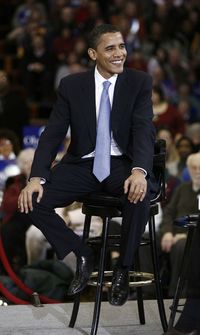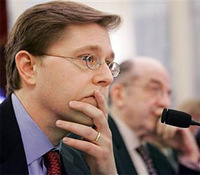 Advocates of the “exabyte flood” political campaign against net neutrality
claim they are for innovation and that the coming flood of Internet usage
will stifle innovation unless they get their way.
Advocates of the “exabyte flood” political campaign against net neutrality
claim they are for innovation and that the coming flood of Internet usage
will stifle innovation unless they get their way.
What will really stifle innovation on the Internet is this:
The Federal Communications Commission, at the urging of Chair Kevin Martin, voted 3-2 on Tuesday to relax longstanding rules that block corporations from owning a broadcast TV station and a newspaper in the same city.No, not specifically newspaper and television consolidation. Further consolidation of media and information distribution in the hands of a tiny number of companies. This December the FCC lets newspapers and TV stations consolidate. Last December it let SBC buy Bellsouth. Internet access is already in the hands of a tiny number of companies (typically at most two in any given area) that are increasingly moving to control the information they carry on behalf of a small number of companies including themselves and movie and music content producers.— Uproar Over FCC Vote on Media-Ownership Rules, By Frederick Lane, Top Tech News, December 19, 2007 10:14AM
The exaflood politics isn’t really about how much infrastructure the duopoly has to build out. It’s about maintaining the duopoly and extending its control of information, to the duopoly’s short-term profit and the long-term detriment of of us all, including the duopoly.
-jsq







